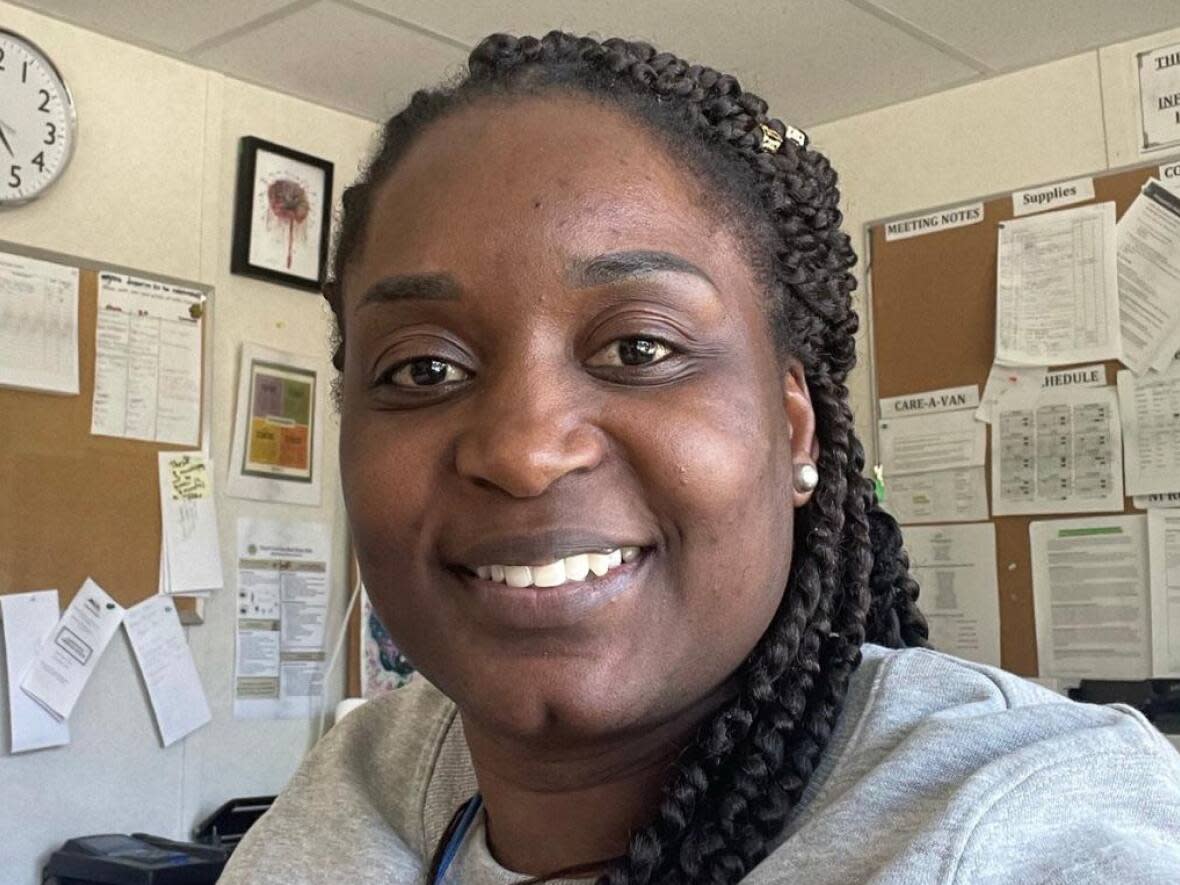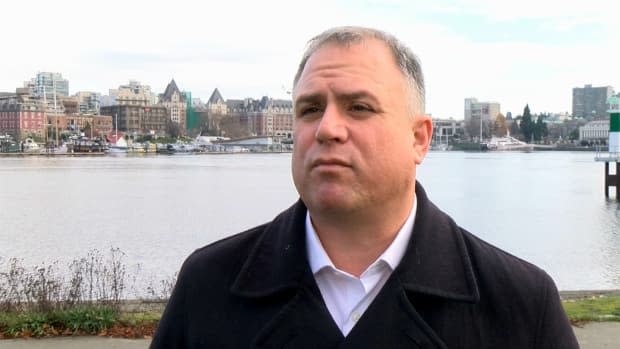Vancouver Island community fighting to prevent refugee claimant's deportation

Grace Mukadzambo has less than a week to fight for her right to stay in Canada.
Mukadzambo claimed refugee status when she arrived in Canada from Zimbabwe in July 2018. Her refugee status renewal was denied at the end of 2022, and now she faces deportation on Jan. 30 to her home country, where she "fears for the safety of her life" due to the violent conditions women face attempting to enter the workforce.
The Vancouver Island community of Courtenay that she has called home in recent years is fighting to let her stay. MP Gord Johns has been working with the immigration minister's office to intervene, and Courtenay city council voted Wednesday on a resolution calling on the immigration minister to delay the deportation.
"This is unacceptable," said Johns, who has been helping Mukadzambo fight the deportation since November.
"We need the ministry to intervene, halt the deportation order and protect Grace's safety and her security and also ensure that she's got a chance here in Canada where she's already participating and contributing and lifting up the community."

Mukadzambo came to Canada to find a safe place to live and work and to provide for her family in Zimbabwe. She lived in Edmonton for two years, where she worked as a housekeeping aid at a Greater Edmonton Foundation senior residence. After moving to Vancouver Island in 2020, she began working at four local service organizations.
Refugee status renewal denied
The Immigration and Refugee Appeal Board of Canada denied Mukadzambo's appeal of a decision to deny her refugee status on Jan. 13.
Mukadzambo has also applied for permanent residency on humanitarian and compassionate grounds and has been waiting for a response from Immigration, Refugees and Citizenship Canada (IRCC).
Johns has been working with both the Canada Border Services Agency, which is handling her deportation order, and IRCC to try to secure her a Temporary Resident Permit to delay the deportation.
"The agents have basically just been saying that it's a normal part of the process, that it can get down to the wire," he said. "We've just been advocating that we need to keep Grace here in Canada."
On Jan. 24, Johns sent a letter to Public Safety Minister Marco Medicino urging him to intervene on Mukadzambo's behalf.
If she is deported, she will not be able to revisit Canada without filing for authorization that must be approved by an immigration officer.
Mukadzambo has depleted her savings to hire legal representation to fight her looming deportation. But if they fail, she will have to board a one-way flight to Zimbabwe on Monday.
"I came to Canada to find a safe place to live and contribute," she wrote in a letter to government officials as she attempted to appeal the deportation.
"However, my plea for refugee status and opportunity to remain here and live my dreams are slipping away."
A community leader
CBSA denied the CBC's request for an interview and said they can not comment on specific cases.
During Mukadzambo's time in Courtenay, she has become a leader in the four social service organizations at which she works: the John Howard Society, the Comox Valley Transition Society, Nomina Wellness, and Carmichael Enterprises.
Through these organizations, she helps people seeking addictions treatment, victims of domestic violence, people with disabilities and people who are experiencing chronic homelessness.
If she is forced to leave, her co-worker Paul Bozenich says her roles will be hard to fill — particularly due to the high turnover rate and staffing shortages that he says the organizations suffer from. He says she is working 80 hours a week across these services.
"By sending her back to Zimbabwe, I think we're sending a soldier off the front lines of the battles we're waging here in B.C. — the battle against homelessness, the battle against the toxic drug supply," he said.
In her plea to government officials, Mukadzambo detailed the numerous health and safety risks she faces if made to return to Zimbabwe. The concerns she lists include widespread violence and assault towards women attempting to enter the workforce, a broken health-care system that prompts the country's leaders to seek medical care in other countries, and a contaminated water crisis.
The community of Courtenay isn't letting Mukadzambo go without a fight. Her friends have started a GoFundMe campaign to help fund her legal defence.
On Wednesday night, Courtenay city council voted unanimously to support a motion from coun. Wendy Morin to ask the immigration minister to delay the deportation.
"This is not about one person's story," she said. "It's about the necessary changes I think that we need in this process in terms of helping people who have legitimate refugee concerns."
For more stories about the experiences of Black Canadians — from anti-Black racism to success stories within the Black community — check out Being Black in Canada, a CBC project Black Canadians can be proud of. You can read more stories here.



